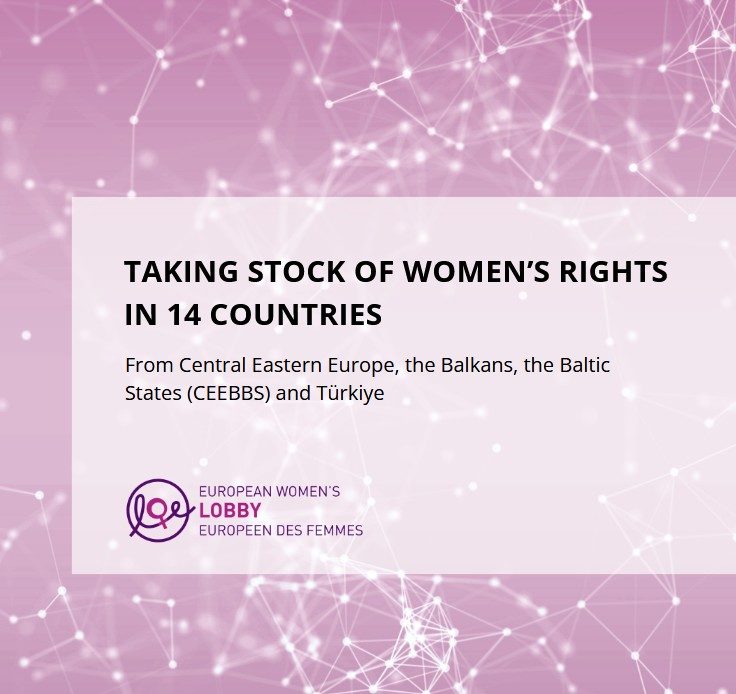[Press release of the Europen Parliament, 13 September 2016] MEPs adopted in plenary on Tuesday a non-binding resolution calling for the need to modernise work-life balance framework, legislative and non-legislative measures, at EU and national level. MEPs recommend to improve different types of leave, to provide adequate income replacement and social protection during any type of family or care related leave.
The resolution was adopted by 443 votes in favour, 123 against and 100 abstentions.
“By adopting a resolution we have sent a clear message to the European Commission that we want to modernise the existing legislation (revision of Maternity leave directive, improving parental leave), to adopt new EU directives on Paternity leave and Carers’ leave, said co- rapporteur Vilija BLINKEVIČIŪTĖ (S&D, LT). “We need all these new developments in order to increase participation of women in the labour market and improve work-life balance. Fathers should be more involved in sharing family responsibilities in order to improve gender equality. The EU faces unprecedented demographic challenges and our society is changing.
Job insecurity and difficult working conditions have a negative impact on work-life balance, thus the reason we are calling for the family and related types of leave”, she added.”I find it very important for everyone to keep work and private life in balance, not to forget that life consists not only of work, but there has to be also a space for family and personal life, including hobbies, personal development, friends and a time for rest, said co-rapporteur Tatjana ŽDANOKA (Greens, LV). As we point out in our report, good work-life balance also brings benefits to the economy and society as a whole. It is very important for Member States to implement the Working Time Directive and to ensure the availability of and access to a high quality and affordable care in every Member State in order to give every person with a caring responsibility a possibility to keep a genuine work-life balance. Also adequate income replacement and social protection during any type of family- or care-related leaves are key, and therefore we stress the need for legal instruments to guarantee this”, she added.
Revision of Maternity leave directive
MEPs call on the Commission to bring new ambitious proposals to the Maternity Leave Directive ensuring that women are paid and covered by social protection for the duration of maternity leave and are not being financially penalised for having children.
Improving parental leave
The minimum duration of parental leave with adequate income replacement and social protection should be from four to at least six months, says the text. Parents should be given flexibility to use the leave in fractions or altogether and the age of the child for which parental leave can be taken, need to be increased. MEPs reiterate that parental leave should be equally shared between parents and that both parents have to be treated in the same way in terms of rights to income and the duration of leave.
New paternity and carers’ leave directive
MEPs urge the Commission, in order to allow parents with children or people with dependants to achieve a better work-life balance, to come up with the new directive on paternity leave with a minimum of a compulsory two-week fully paid leave and with the carers’ leave directive which enables workers to care for dependants and offers the carer adequate remuneration and social protection. MEPs also call on Member States to introduce ‘care credits’ through labour and social security legislation as equivalent periods for building up pension rights in order to protect those taking a break from employment to provide informal, unpaid care to a dependant or a family member and recognise the value of the work of these carers for the whole society.
Care for children and smart working
Quality child care services should be available, affordable and accessible, says the text. To combat child poverty, MEPs call on initiatives such as child guarantee which would guarantee free healthcare and education and adequate nutrition. Furthermore, MEPs stressed the importance of flexible forms of work (flexible working hours) in allowing women and men to reconcile work and family life, provided that the worker is free to make the choice. Flexitime and predictable working hours positively influence the work-life balance, say MEPs calling on Member States to secure working hours and weekly rest periods through the implementation of every relevant legislation.
Procedure: non-legislative resolutions
Further information
Adopted text will be available here (click on 13.09.2016)
Video recording of debate (click on 12.09.2016)



